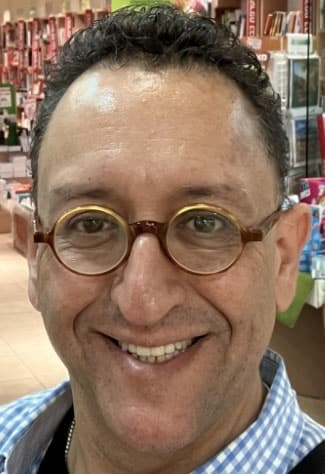It was early Monday morning here in the Old City of Jerusalem. We had just finished our minyan in the Rabban Yohanan Ben Zakkai synagogue, the same synagogue where generations of Sephardic Chief Rabbis have been crowned as the Rishon L’Zion. I walked over to the bookcase, and my heart was drawn to a large volume titled “Yabia Omer.” I sat over coffee studying, and when I turned on the radio, I heard that Rav Ovadia Yosef was in critical condition. I spent the morning immersed in “Yabia Omer,” until the bitter news was announced: “Rav Ovadia Yosef has passed on to heaven.” He was 93.
“Yabia Omer” is one of several halakhic books written by Rav Ovadia Yosef, arguably this generation’s most knowledgeable rabbinic scholar. I have enjoyed a lifelong personal history with Rav Ovadia and his books, dating back to my childhood in Los Angeles. In his memory, I would like to share two personal experiences with Rav Ovadia that will always stay with me, and that were ever present in my mind as I walked with hundreds of thousands to lead him to his final resting place in Jerusalem.
In 1975, when Rav Ovadia first came to Los Angeles, I was 11 years old. Our entire school went to the airport to greet him with songs, and the few Sephardim amongst us approached him to kiss his hand, as is our custom. After speaking at our school, Rav Ovadia was scheduled to speak all over Los Angeles. A schedule of his appearances was distributed, and my father promised to take me to hear him every night. I was excited, because I thought his robe and turban were from another world, and he looked so cool in his dark sunglasses. (His eyes were very sensitive to light.) I was also amazed at how he stood in front of audiences without a single book or note cards, and quoted pages of Talmud by heart.
My father took me to hear him for three consecutive nights. One night, my father had to work late, and he asked my mother to take me. Of all nights to ask my mother, this was the one night where Rav Ovadia was speaking in a yeshiva, where no women would be in attendance. My mother took me, and upon arrival, she was, indeed, the only woman there. We stood outside contemplating what to do, when Rav Ovadia suddenly arrived. As he walked by us, he greeted my mother, and when I kissed his hand, he gave me a loving caress on my cheek. I guess by now he recognized me from the previous nights! He walked into the Beit Midrash, and my mother and I stayed outside. Apparently he noticed that we did not come inside, for, less than a minute later, he walked back outside and signaled to us to come in. As we walked in – a woman in pants with her 11-year-old son – to a room filled with men, Rav Ovadia respectfully asked the men in the first row to make room for me and my mother. He then got onto the stage to speak, and started by looking at my mother and saying, “Blessed are the parents who raise their children in the path of Torah.”
Many years later, with this warm memory of Rav Ovadia embedded deep in my heart, I found myself in New York in my third year of Yeshiva University’s rabbinical program. It was 1991, and Rav Ovadia was scheduled to visit us for a week. As one of the few Sephardic rabbinical students at YU, I was given a tremendous honor: To be his shamash (personal assistant) for the week. I spent morning, noon and night with him, getting to know him personally. I met the family man, studied with the scholar, and even got a glimpse of the powerful politician. Of the many experiences that I was privileged to be a part of that week, one stands out in my mind.
A group of us were walking with Rav Ovadia on Amsterdam Avenue, on the Washington Heights campus of Yeshiva University. Dressed in his majestic robe and turban, Rav Ovadia was scheduled to give us a lecture explaining why – contra to all other rabbinic opinions – he had boldly recognized the Ethiopians as Jews, thus paving the way for their acceptance in Israel. As a Sephardic Jew who had suffered from discrimination in Israel, he was sensitive to their plight. As we approached the auditorium, a Latino-Catholic family was walking toward us, and they saw the rabbi dressed in his robe. They sensed he was a holy man, and as they approached us, they came before him and bowed in reverence. You had to see the look on all of the rabbi’s faces when Rav Ovadia stopped and reverently bowed back to them.
I have studied Rav Ovadia’s books my entire life, including this morning. But more than anything he’s ever written, these two experiences taught me life lessons of Derech Eretz. They also taught me that underneath the at times harsh exterior of this larger than life public figure, there was a sweet, sensitive and kind-hearted man.






















 More news and opinions than at a Shabbat dinner, right in your inbox.
More news and opinions than at a Shabbat dinner, right in your inbox.